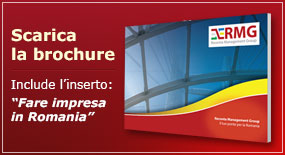Summary of the legislative innovations applicable in 2019
The year 2019 brought numerous innovations from the economic point of view, the law n. 30/2019 and OUG n. 114/2018 are the main legislative acts that have changed the  national legal framework.
national legal framework.
Starting from 2019, a tax procedure was adopted for incomes realized by individuals with the virtual currency system (cryptocurrencies), equal to 10%. The amounts are classified as revenue from other sources. The individual who will make these earnings will deposit the single income statement and social insurance.
The conditions for applying the reduced VAT rate of 5% have been simplified in the case of house purchase. Therefore, the reduced VAT rate on the purchase of housing no longer applies to a single purchase by an individual but can be applied to all purchases made by a natural person provided that the useful area of the house is at most 120 meters square, and the sales price, excluding VAT, amounts to a maximum of 450,000 lei at the time of purchase, including the land on which the house is built.
Furthermore, the provision for which the land on which the dwelling is built must not exceed 250 square meters.
New provisions have been introduced regarding sponsorships, with effect from 1 April 2019, and a register of cult units for which tax deductions are granted will be established. Therefore, only for the sponsorships carried out in favor of the entities registered in this register will it be possible to use the tax credit for the purpose of calculating income tax or income tax on micro-enterprises.
The register of religious units for which tax deductions are granted will be organized by ANAF and a procedure will be published for this purpose.
With regard to corporate income tax, the percentage of deductibility of the interest rate increased from 10% to 30%, applied to the calculation base determined on the basis of the tax code and the deductibility limit increased from € 200,000 per year at € 1,000,000 per year.
In the Tax Code, new regulations on the risk analysis applied to companies have been introduced. Therefore, taxpayers will be classified into three main risk classes, as follows: low tax risk, medium fiscal risk or high tax risk.
The general criteria on the basis of which the tax risk class / sub-class is established will be the following:
– Criteria concerning the tax registration
– Criteria for submitting tax returns
– criteria on the level of the declaration;
– Criteria for the fulfillment of payment obligations for the general consolidated balance sheet to other creditors.
The risk analysis to establish the risk class of a company will be carried out periodically and the ranking will be made public on the website of the tax authority. Companies will not be able to question either the manner in which the risk was established or the risk classification.
For companies with debts, a mediation procedure is introduced in which the debtor notifies the tax authority of his intention, within 15 days of receipt of the convocation. For the notification, the tax payer who wishes to mediate must attach documents and information to support his economic and financial situation. The tax office has the obligation to organize the meeting with the tax payer for the mediation procedure within a maximum of 10 days from the receipt of the notification.
OUG no. 114/2018 introduces changes to income taxes and social contributions for some categories of workers (construction, daily workers, budget) and introduces new taxes on the financial activities of banks, on gambling, on electricity.
The category of persons exempted from income tax is extended to employees in which employers carry out activities in the construction sector. Therefore, between 2019 and 2028, construction employers will pay less tax on their employees, provided they earn gross salaries of at least 3,000 lei and no more than 30,000 lei. Employers will therefore be exempt from health care and income tax, while they will pay reduced amounts for their contribution to pensions and work. Furthermore, for 2019, a minimum national gross salary of 3,000 lei has been set in the building sector, which is mandatory.
With regard to unqualified work with an occasional character of day workers, this can now only be done in some areas of activity, namely:
– Agriculture, hunting and related services;
– Forestry;
– Fishing and aquaculture.
Until 30 June 2022, the application of the measures to simplify VAT (reverse charge) for the delivery of cereals and technical plants, emission certificates for gas, electricity for a retailer, green certificates, telephones was extended mobile phones, microprocessors, laptops.
From 1 January 2019, the minimum daily legal allowance has risen from 17 lei per day to 20 lei per day. Therefore, the daily non-taxable allowance that can be granted to an employee in a private company can now reach 50 lei per day.

